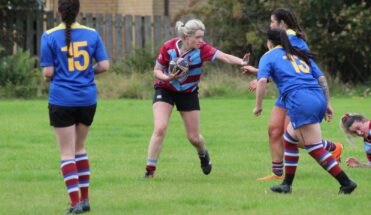From Raeburn Place to Grand Slam Glory
As this month we celebrate the 150th anniversary of the first-ever international rugby match, we also reflect on how the sport’s growth and diversification proudly shares some very similar roots.
International women’s rugby is nearing its 39th anniversary – with the honour of first hosts falling to the Dutch city of Utrecht, where the French Women beat their counterparts from the Netherlands on 13 June 1982.
Raeburn Place remains at the heart of the story of international women’s rugby in Scotland. On Valentine’s Day, 1993, Scotland Women made their bow on the international stage, recording a 10-0 victory over Ireland. Among the Scotland team that day was a young lock forward, Lee Cockburn, who was with Edinburgh Accies and who had only started playing rugby when she was 22, having spent 11 years as a swimmer.
“My dad had played at Trinity Accies, but it was Sue Brodie (the Scotland full-back that day) who asked me to play rugby,” Cockburn, now a police officer, recalled.
“I’d knocked her back at first. ‘No, I’m not going to play that rough game,’ I’d said. But I did agree eventually, and I ended up playing rugby for 28 years!
“I only played my last game three years ago in April. I played for Scotland 77 times between 1993 and 2006 and won every game I played against Ireland!”
What did she remember of that first match?“I remember us doing fliers up the town to get people along to the game and I remember being the proudest player to be given the opportunity. It’s pride that made me play – not about what you get back from it.
“It was very busy at Raeburn Place that day. The match was well attended, certainly more like the 1000s, than the 100s. It was ground-breaking for women’s rugby.”
Scotland’s two tries came from scrum-half (and captain for the day) Sandra Colamartino.

Wind on a year, and, at the 11th hour, Scotland ended up hosting the 1994 “Women’s Rugby World Championship”, after the original hosts of the Women’s Rugby World Cup, the Netherlands had pulled out some 90 days before the scheduled start, having failed to seek official endorsement for the tournament from the IRB.
Scotland began with a 51-0 win over Russia, in a Wednesday tea-time match at Meggetland, where Jim Telfer, was among the animated spectators. Four days later, they played England in an international for the first time, again at the home of Boroughmuir.
Cockburn said: “We had played against England as a Scotland Select before and had lost 79-0. England were already well-established, but we were so up for the game, our first full international against England, and the crowd was so fantastic. Totally on our side.”
England won 26-0 but some 4,000 spectators had underlined there was a growing appetite for the women’s game and inquiries started to come in for tournament organisers on how women’s clubs could be established.
Matches in that 1994 competition were also staged at the Greenyards in Melrose; Burnbrae, home of West of Scotland; and at Raeburn Place. Scotland, fledgelings in the women’s game, finished the tournament in a highly creditable fifth place, winning the Shield, courtesy of victories over both Ireland and Canada.
“To finish fifth in the world was just brilliant and Sue Brodie had done a power of work to ensure the tournament could be hosted in Scotland,” Cockburn added.
The final was staged at Raeburn Place and a crowd in excess of 5,000, plus a sizable BBC TV audience, watched as England won 38-23 against the USA. The tournament was the springboard to a surge of interest in women’s rugby in Scotland.

Four years later, Scotland, with five players from the starting line-up of that first international at Raeburn Place – Cockburn, Kim Littlejohn, who had taken on the captaincy, Michelle Cave, Julie Taylor and Scotland’s most capped rugby player Donna Kennedy (115 caps) – were lining up for their first tilt at Grand Slam success at the old international ground at Inverleith on a Saturday afternoon in March.
Having earlier accounted for Ireland and Wales both away and seen off the French 19-3 at home, Scotland went on to secure the glory and their first victory over the Auld Enemy by 8-5 with Littlejohn scoring a first-half try and Paula Chalmers kicking the winning penalty in the second half.
The match report from David Hands of The Times is carried below:
Monday, 23 March 1998
Chalmers gives Scotland World Cup inspiration
Scotland 8 England 5
SCOTLAND, the most improved of the home international sides in women’s rugby over the last two years, will go to the World Cup in Holland in May as holders of the grand slam. They will do so thanks to a penalty goal kicked by Paula Chalmers, which earned them victory over England at Inverleith on Saturday, though the slim margin of victory does not indicate Scotland’s all-round superiority.
Before the last Women’s World Cup in 1994, which they hosted, Scotland were among the newest of international contenders, but they have established a side that has now overtaken the two countries dominant in women’s rugby in the northern hemisphere for the past 15 years, France and England, whose hopes of a successful defence in Holland of the title that they won in Edinburgh four years ago do not look well-founded.
In an error-strewn match, Scotland dominated the set-pieces, almost claiming a pushover try in the second half against an England side that formerly took pride in emulating the men’s side in the power of their scrum.
There is, too, far more kicking in the women’s game than used to be the case: it is a skill that they have learned to do well, but Scotland overused it on this occasion, for they had a back division with the legs of England.
They proved that in the first quarter, when Kim Littlejohn looped swiftly to retrieve a dropped ball and rounded the English cover. Yet, before the interval, England had made up for two missed penalty attempts from Gill Burns, Maxine Edwards leading a drive on the left before the backs at last sustained a handling movement to create space for Pip Spivey on the right.
Only ten minutes remained when Chalmers, to the delight of Craig, her distinguished brother, who was among the spectators, kicked the penalty that won the game, leaving England with the game against Ireland at Worcester on April 4 to make hasty repairs to their World Cup defence.

SCORERS: Scotland: Try: Littlejohn (13min). Penalty goal: Chalmers (70). England: Try: Spivey (22).
SCORING SEQUENCE (Scotland first): 5-0, 5-5 (half-time), 8-5.
SCOTLAND: A McGrandles (Leeds); D Fairbairn (Murrayfield Wanderers), P Paterson (Richmond), K Littlejohn (Leeds, captain), M Cave (Saracens); R Lewis (Murrayfield Wanderers), P Chalmers (Murrayfield Wanderers); J Taylor (Edinburgh Academicals; rep: E Allsopp, Murrayfield Wanderers, 53), S Scott (Murrayfield Wanderers), K Findley (Richmond), L Cockburn (Edinburgh Academicals), M McHardy (Murrayfield Wanderers), J Afseth (Edinburgh Academicals), B McLeod (Murrayfield Wanderers), D Kennedy (Leeds), I Wilson (Alton), L Blamire, A McKenzie, J Sheerin (Richmond), S Higgins.
ENGLAND: P George (Wasps); P Spivey (Clifton), S Day (Wasps), S Harris (Waterloo; rep: S Appleby, Saracens, 70), N Brown (Worcester; rep: J Molyneux, Waterloo, 70); G Pragnell (Wasps), E Mitchell (Saracens); T O’Reilly (Saracens), J Potter (Wasps; rep: J Smith, Wasps, 65), M Edwards (Saracens; rep: A O’Flynn, Waterloo, 65), L Uttley (Wasps), T Siwek (Richmond), J Ross (Saracens; rep: J Chambers, Wasps, 10-14, 38-40), G Stevens (Clifton), G Burns (Waterloo, captain).
Referee: P Sleeman (Wales).
That triumph was a worthy salute to the pioneers of the women’s game in Scotland who, like their male counterparts, had gone from tentative steps at Raeburn Place to the ultimate European rugby prize.
The current Scotland squad are preparing for the ‘new look’ 2021 Women’s Six Nations Championship in April, where they will face England and Italy in their pool.
Visit the Fan Zone on scottishrugby.org for exclusive content from camp.
Related Fanzone

Podcast: Rachel Malcolm | One to one with Caroline Blair
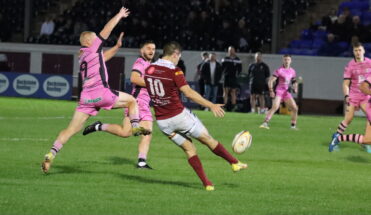
Guide to the Games | Round 2

WATCH LIVE: 2024 Silver Saturday

Silver Saturday preview: Scottish Cup final: Edinburgh Academical v Hawick
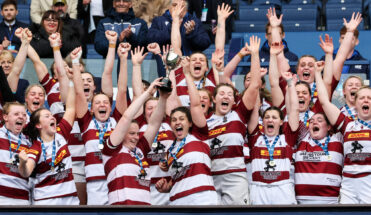
Silver Saturday preview: Sarah Beaney Cup: Watsonians v Hillhead Jordanhill
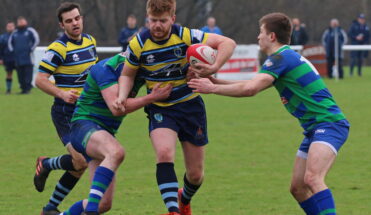
Silver Saturday Preview: Men’s League Cup final: Lasswade v Falkirk
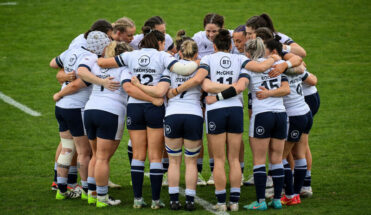

Watch: Rise Now | Bounce back in Parma
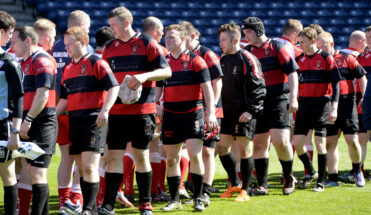
Silver Saturday Preview: Men’s Shield final: Cumnock v Moray
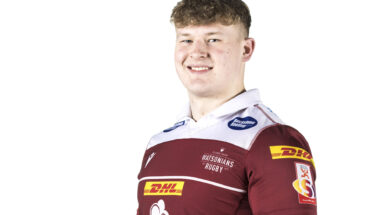
Finn Duraj: Learning from the best
